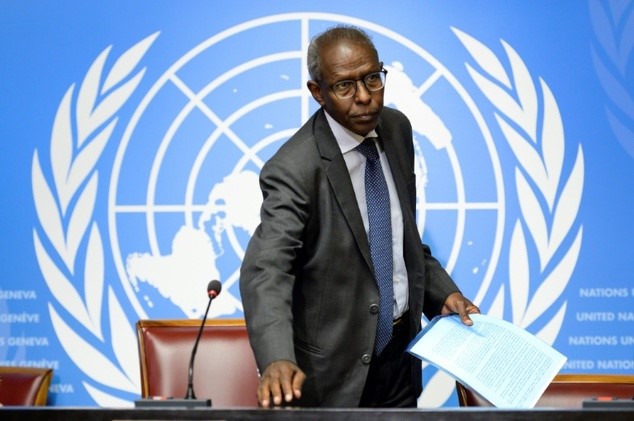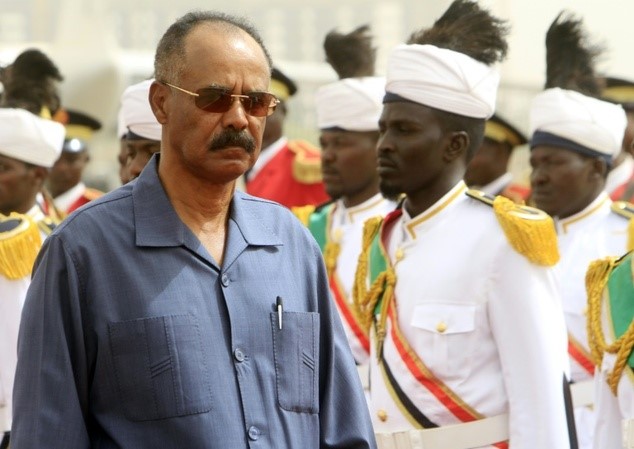African Union should probe Eritrea violations: UN body
The United Nations rights council on Friday called on the African Union to investigate Eritrean leaders over alleged crimes against humanity after a damning report by a UN commission.
In that report, the UN's Commission of Inquiry (COI) for Eritrea said the government of President Isaias Afwerki had committed heinous crimes since independence a quarter-century ago, including the "enslavement" of 400,000 people.
Many of those abuses are allegedly linked to a harsh national service programme in the secretive Horn of Africa state, which for many is almost impossible to escape and which the COI compared to lifetime enslavement.

the Commission of Inquiry on human rights in Eritrea on June 8, 2016 at the United Nations office in Geneva ©Fabrice Coffrini (AFP/File)
In a resolution that passed with consensus by the body's 47 members, the Human Rights Council said it "strongly encourages the African Union to follow up on the (COI) report."
The AU should set up "an investigation... with a view to examining and bringing to justice those responsible for violations and abuses of human rights identified by the commission of inquiry, including any that may amount to a crime against humanity."
The AU, based in Addis Ababa, capital of Eritrea's bitter rival Ethiopia, has no prosecutor or court system.
But the AU played a leading role in setting up a special court to prosecute former Chadian military dictator Hissene Habre, who was sentenced to life in May for war crimes and crimes against humanity over his brutal 1982-1990 rule.
Experts said that model could be replicated, including to avoid the involvement of the International Criminal Court in The Hague, which many African leaders have condemned for allegedly focusing excessively on the continent's leaders.
The rights council resolution broadly endorsed the COI's findings and urged Eritrea to resolve a range of systematic abuses.
Those include extrajudicial killings, torture and indefinite detention allegedly committed by people at the top of Isaias's government.
Eritrea has rejected the COI's findings.

had committed heinous crimes since independence a quarter-century ago ©Ashraf Shazly (AFP/File)


![[AIM] Asmarino Independent Media](/images/logo/ailogo.png)